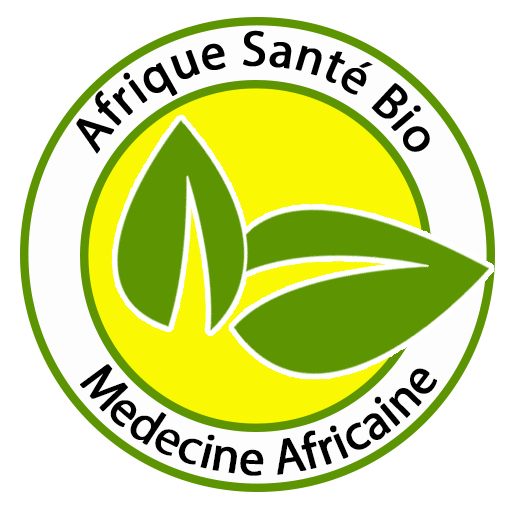MASTITIS: CAUSES, SYMPTOM AND TREATMENT
- On 09/06/2022
Do you want to be mastitis easily and save your money?
Would you like natural remedies to cure diseases?
AFRIQUE SANTE BIO is renowned for its ORGANIC treatment based on African medicinal plants.
If you want to be yourself without spending money, then contact the AS centre
MASTITIS
DO YOU WANT TO GIVE BREAST MILK TO YOUR CHILDREN WITHOUT FEAR OF GETTING SICK?
THIS ARTICLE IS USEFUL FOR YOU…
Please contact us at http://wa.me//+22967546677
Written and edited by DJIMA Rachidatou on 03/08/2022
Make an appointment with a specialist at
DEFINITION AND TREATMENT
Mastitis can have an inflammatory or infectious origin. Read here the ORGANIC remedies offered by the NGO AFRIQUE SANTE BIO by clicking on DISCOVER THE ORGANIC REMEDY Mastitis is a morbid condition of the breast characterized by heat, pain, and redness, most often unilateral, which occurs in the immense majority of cases in breastfeeding women. They are then called "puerperal mastitis." However, mastitis (non-puerperal) may occur in a woman who is not breastfeeding.
Related search
What causes mastitis?
How do you know if you have mastitis?
What treatment for mastitis?
Which anti-inflammatory for mastitis?
How to treat inflammatory mastitis?
CAUSES OF MASTITIS
Several causes can explain the presence of mastitis:
Bacteria present on the surface of the breast enter the nipple through cracks or crevices due to breastfeeding.
Breast milk stagnates in the breast because the baby is not nursing enough, the milk is not flowing properly, or because of an increase in the secretion of prolactin (the hormone that produces breast milk).
In cases of mastitis that occur outside of pregnancy or breastfeeding, bacterial overgrowth in the breast can also be caused by an increase in prolactin (for no known reason) or by:
- diabetes mellitus,
- Syphilis,
- Tuberculosis,
- Trauma: blow received on the chest
IF YOU WANT TO HAVE MASTITIS INFECTIONS, THEN YOU MUST CALL YOU'RE NATURAL HEALTH CENTER AFRIQUE SANTE BIO BY CLICKING ON "I WANT CURE"
SYMPTOMS OF MASTITIS
Breastfeeding mastitis is present in 20 to 30% of breastfeeding women, more or less seriously. In the vast majority of cases, the inflammation only lasts 24-48 hours.
It should be noted, however, that this statistic is only valid in industrialized countries: in remote areas and traditional populations, the prevalence of mastitis is less than 3%. In these countries, women are more likely to breastfeed their babies on demand (every hour, if necessary!). Some studies, therefore, tend to prove that breast inflammation is largely due to the "bad" way of breastfeeding.
Also, research results have confirmed that mastitis is not contagious.
The following signs reveal the symptoms of mastitis:
- The sensation of excruciating pain in the breast
- The sensation of pressure in one breast
- Localized redness and warmth on the sore breast
- Sore or crack on the nipple
- Headache
- Itching
- The sensation of a hard lump in one breast
- Articular pain
- Fever and chills
- Enlarged armpit glands
Sometimes: discharge of blood or pus in the milk
Rarely: abscess
In cases of non-puerperal mastitis, the symptoms are usually less virulent, but they can recur frequently.
POSSIBLE COMPLICATIONS OF MASTITIS
Mastitis is usually mild and resolves on its own within a few days. However, sometimes the infection is more serious and requires medical intervention to drain the pus present in an abscess. In some cases, phytotherapist intervention is necessary for the treatment of mastitis.
Sometimes recurrent mastitis not caused by breastfeeding is caused by the presence of a cancerous tumour
.
PRECAUTION AND TREATMENT
In most cases, mastitis only lasts 24-48 hours and can be reversed without medical treatment. It is often sufficient to apply the following measures:
Rest as much as possible.
Make sure the breastfeeding position is correct.
Breastfeed the baby more frequently, to drain the breasts well (8 to 12 times a day)
Apply hot compresses to the breast before breastfeeding, and cold compresses after breastfeeding.
If necessary, express excess milk.
Gently massage the affected breast.
If the situation does not improve within 24 hours, a medical consultation is necessary. In this case, please call your physiotherapist for a good treatment to put an end to the infection.
Mastitis Prevention
Mastitis that is not caused by breastfeeding cannot usually be prevented.
About puerperal mastitis, certain measures can reduce its incidence:
- Breastfeed frequently.
- Make sure you have a good position while breastfeeding.
- Change positions frequently while breastfeeding.
- Treat small cracks as soon as they appear.
- Make sure the breasts are well emptied after each feed (drain them manually or with a breast pump, if necessary).
Note
The information in this article is provided to you for preventive information only and will allow you to ask informed questions to your doctor. Under no circumstances can they replace the advice of a health professional. We remind you that it is strongly recommended to consult a phytotherapist if you believe you are suffering from a health problem.
Please contact us at http://wa.me//+22967546677
Written and edited by DJIMA Rachidatou on 03/08/2022
Make an appointment with a specialist at
